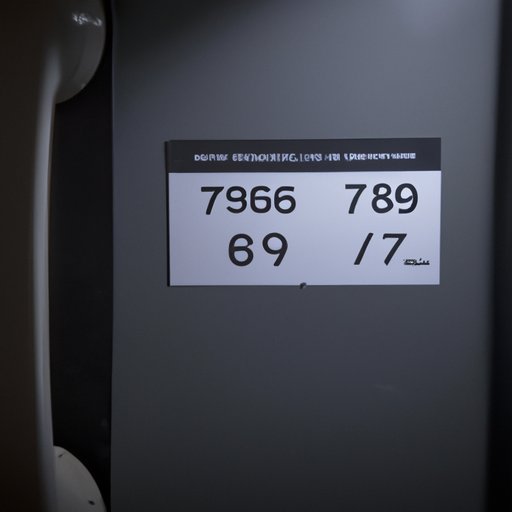
Introduction
It’s important to protect our privacy in today’s digital age, and one way to do this is by making anonymous phone calls. However, this can be a tricky task, especially when traditional phone carriers require identity verification. In this article, we’ll explore various methods for making anonymous phone calls to help you protect your identity.
Use a Disposable Phone Number App or Service
An excellent way to make anonymous phone calls is through using disposable phone number apps or services. These services allow users to create temporary numbers for calls so that their identity is not revealed. Examples of these apps or services are Burner, CoverMe, or Hushed.
These services work by assigning a temporary anonymous phone number that can be used for as long as needed. Users can also choose to have their outgoing number show up as the anonymous number they were assigned when using a specific app.
The benefits of using disposable phone number apps or services are that they are quick, cost-effective, and efficient for making customized calls without exposing personal information. These services usually also offer secure texting and calling features for added security.
Use *67 to Block Your Caller ID
Another way to make anonymous phone calls is through using *67 to block your caller ID. This method is free and easy, and one of the ways to restrict caller ID on traditional phone calls.
To use the website, dial *67 followed by the phone number you want to call. The receiver of the call will see an anonymous number instead of your phone number, preserving your anonymity.
However, some phone carriers do not support this method. So even when you use *67, it may not always successfully block your caller ID.
Make an Internet Call
Using services like Skype, Google Voice, or other Voice-Over-Internet-Protocol (VoIP) services is another practical way to make an anonymous phone call. These services don’t need a physical phone line to make calls, and they mask your identification by using a different phone number to make the call.
To use this method, all you need is stable internet access. These services don’t charge the huge fees that traditional phone carriers charge you in mobile phone bills.
However, it’s important to note that those services may need strong internet access, good microphone and headphone quality, and a good device to work without any lag. It means that poor quality internet speeds may affect communication and lead to delays.
Use a Public Phone
Using a public phone to make anonymous phone calls is another way to protect your identity. Public phones lack a connection with any individual phone line, so the chances of being traced are slim, giving you more privacy than using your phone.
You can find public phones in several places, including gas stations, malls, airports, or cafes. With no digital traces to follow, using a public phone is one of the best options to remain anonymous.
Sign up for a Virtual Phone Number
Virtual phone numbers are another way to make anonymous calls. With services like Pinger or TextNow, you can create a virtual phone number that can be used temporarily to make calls.
To use this method, you install the app, create an account, and sign in. You then use the app’s phone number to make anonymous calls while keeping your identity private.
Virtual phone numbers can be used for business and personal purposes, and they offer call and text features as well. With the option to get rid of the virtual phone number once used, virtual phone numbers offer users an excellent chance to always have temporary numbers they can use when necessary.
Use a Friend’s Phone
If you don’t have an anonymous number app or can’t sign up for a virtual number, using a friend’s phone to make calls is another viable option. Your personal details are not revealed on the call, as long as the friend whose phone you are using isn’t identified.
Note that using a friend’s phone may lead to unintended consequences if the conversation is being recorded, and the authorities may link it back to your friend’s phone number, compromising their privacy instead of protecting yours.
Use a Payphone
Lastly, using a payphone is another way to protect your identity completely. This option is usually only available in public places, and it provides a higher level of anonymity than personal phones or even public phones.
Payphone calls require an upfront payment in coins, debit card, or credit card, typically costing a limited budget and offering the best and naturally most secure option.
However, payphones are scarce these days and may require you to travel around to find one. Additionally, they might not always be operational and could require calling services to have their operator set up.
Conclusion
Anonymity is crucial, particularly in situations that require it, and the methods listed in this article can help with this. Whether you use disposal phone number apps or services or opt for using public phones or payphones, protecting your identity has never been easier.
With advances in technology, there are always new practices to consider when safeguarding one’s privacy. We encourage our readers to utilize these tools and remain anonymous when necessary.




